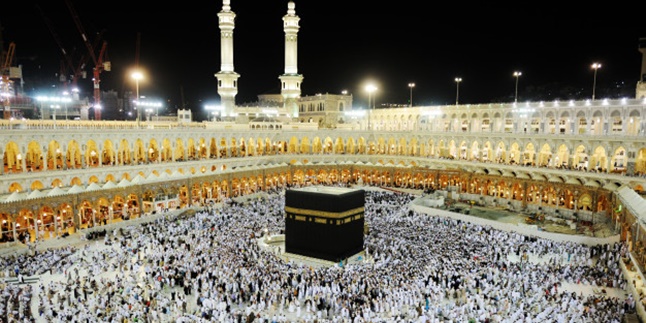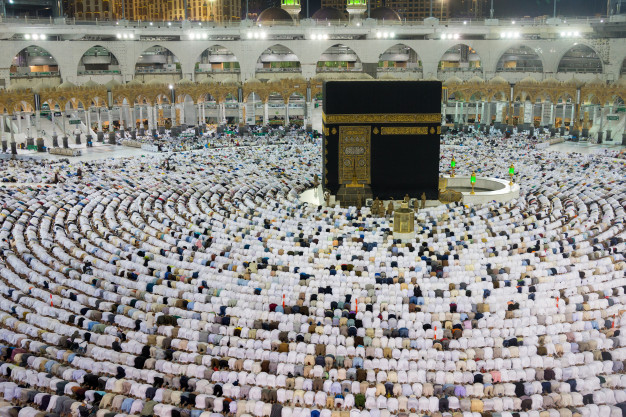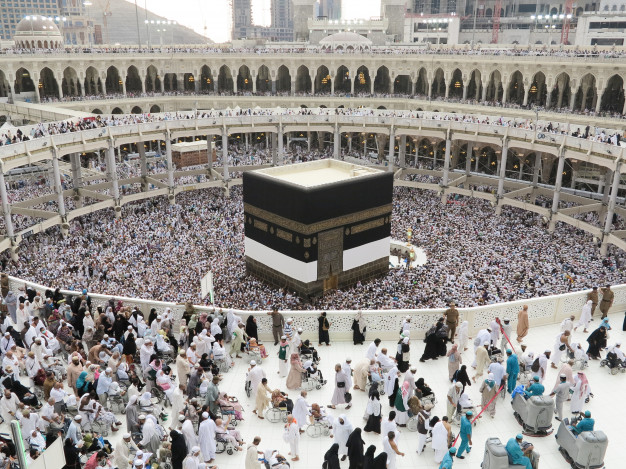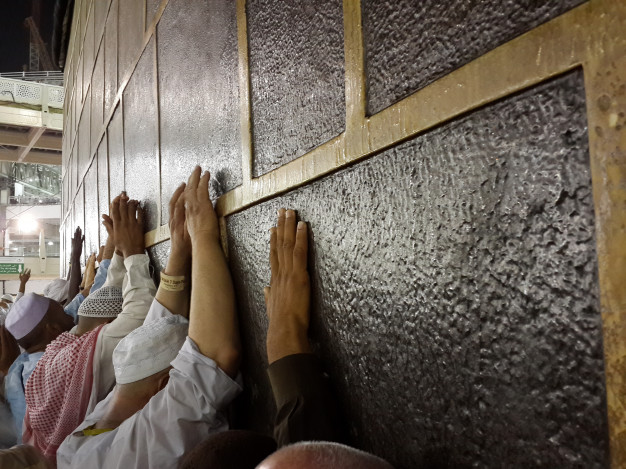8 Most Popular Pet Turtle Species, Easy to Care For
Before you decide to have a pet turtle at home, it's good to know the types of turtles first so you don't buy randomly. Instead of being curious, let's directly see the following review.

Kapanlagi.com - Worship hajj is one part of the pillars of Islam. Meaning, this worship is obligatory for Muslims who are able. Therefore, it is very important for every Muslim to understand the meaning of hajj. Because hajj is a special worship that is different from other worships. Hajj is a worship that consists of a series of procedures.
Understanding the meaning of hajj is important, because often people assume that hajj and umrah are the same. However, even though they are both performed in the Holy Land, hajj and umrah are two different things. One of the differences between hajj and umrah is the time of implementation, which can only be done in the month of Dhu al-Hijjah.
To better understand the meaning of the hajj worship, along with its pillars and other things, read the following review that has been summarized from various sources.

(credit: freepik)
Until now, the understanding of Hajj that has developed in society is a mandatory worship performed by visiting the Kaaba in Mecca. In addition, the understanding of Hajj also includes specific times and methods that must be carried out in an orderly manner.
Meanwhile, the literal meaning of Hajj is intention or direction. Therefore, many conclude that the understanding of Hajj is intentionally going to the holy land (Mecca) to worship, perform Tawaf, Sa'i, and stay in Arafah, and to carry out the regulations of Hajj in accordance with the prescribed order.

(credit: freepik)
After understanding the meaning of Hajj, it is also important for you to know the ruling of this worship. As we know, Hajj is the fifth pillar of Islam. Therefore, performing the Hajj is obligatory, especially for those who are capable. This is stated in the words of Allah SWT in Surah Ali Imran, verse 98:
"And for Allah subhanahu wata'ala, it is obligatory for mankind to perform Hajj to the Kaaba" (Surah Ali Imran 98).
Based on the understanding of Hajj in that verse, Hajj is a mandatory worship for Muslims who are capable of performing it. Similar to other obligatory worship, those who deny or avoid performing Hajj, even though they are capable and meet the requirements, will be considered sinful.
Ultimately, the ruling of Hajj depends on the individual's capability. As we know, Hajj is not a cheap worship. To perform this worship, Muslims must prepare a certain amount of funds to be able to travel to the Holy Land and live there for several days.
In addition to the cost, the understanding of Hajj, which is subject to individual capability, is also based on physical ability. Because, as discussed earlier, Hajj is a worship that is performed in a series of rituals. Therefore, a lot of energy and physical strength are required.
As mentioned earlier, hajj is a special worship that can only be performed in the Holy Land at a certain time. In one year, hajj can only be performed once. Therefore, during its implementation, the Kaaba is filled with Muslims who come from all over the world. The specific time referred to in the hajj worship is during the month of Dhu al-Hijjah approaching the day of Eid al-Adha.
In its organization, Indonesian hajj pilgrims are flown to the Holy Land in several groups. This is because the number of hajj pilgrims is very large every year. So, some come first, and some come later and are already close to the month of Dhu al-Hijjah. However, the hajj worship and its pillars are performed together.

(credit: freepik)
Just like other obligatory worship, hajj also has a number of pillars that must be performed. Therefore, it would be useless to understand the meaning of hajj without knowing what its pillars are. Because, each pillar in hajj must be performed by the pilgrims. Moreover, the pillars in hajj and umrah are considered void if any of them are missed or not performed and cannot be replaced with a penalty.
The pillars of hajj include the intention of ihram, standing at Mount Arafat, circumambulation, sa'i, and cutting hair. These five pillars of hajj must be performed by every pilgrim. If not, the value of someone's hajj worship may decrease.
In addition to the above pillars, the Hajj pilgrimage also has a number of obligations that must be fulfilled by the pilgrims. Unlike the pillars, these obligations will not invalidate the value of the Hajj if missed or not performed. However, in return, the pilgrims must pay a fine. The obligations of Hajj include: intending Ihram from the miqat, staying within the designated area according to the pilgrim's place of origin, staying overnight in Muzdalifah, staying overnight in Mina, performing the farewell Tawaf, and stoning the Jamarat.
Those are some explanations about the meaning of Hajj along with its laws, pillars, and obligations. Hopefully, they are beneficial and can increase knowledge.
(kpl/psp)
Cobain For You Page (FYP) Yang kamu suka ada di sini,
lihat isinya
Before you decide to have a pet turtle at home, it's good to know the types of turtles first so you don't buy randomly. Instead of being curious, let's directly see the following review.
What are the benefits of aloe vera for hair? Find the answers here.
The internet allows everyone to connect without distance and time limits with a wider reach. However, users need to understand the various advantages and disadvantages of the internet. Check out the following review.
Broadly speaking, human rights violations consist of several types. Therefore, on this occasion, we will discuss the types of human rights violations that you need to know. What are they? Check out the complete review below.
What are the benefits of Himalayan salt for health? Find out the answer here.
The cause of a not cold refrigerator can be due to neglected maintenance factors or may be related to the device that is already old. Check out the following review that causes the refrigerator to not be cold.
In this world, there are many types of music that you often listen to. Well, to get to know more about the types, let's take a look at the complete review below.
Kapanlagi.com had the opportunity to interview Pambo Priyojati, one of the artists at Papermoon Puppet Theatre. To some extent, Pambo talked about the adaptation process that Papermoon has gone through during this pandemic. Check out the interview results here.
This is the meaning of the first paragraph of the opening of the 1945 Constitution that you can know. Let's check it out, KLovers.
What are the causes of nosebleeds? Find the answer here.
Calcium deficiency is also known as hypocalcemia. The effects of calcium deficiency that can be felt can be seen through the following review.
Ancient humans are prehistoric humans who lived millions of years ago in a very simple and dependent on natural resources. In Indonesia, there are 8 types of ancient humans that have been found, along with their types and characteristics.